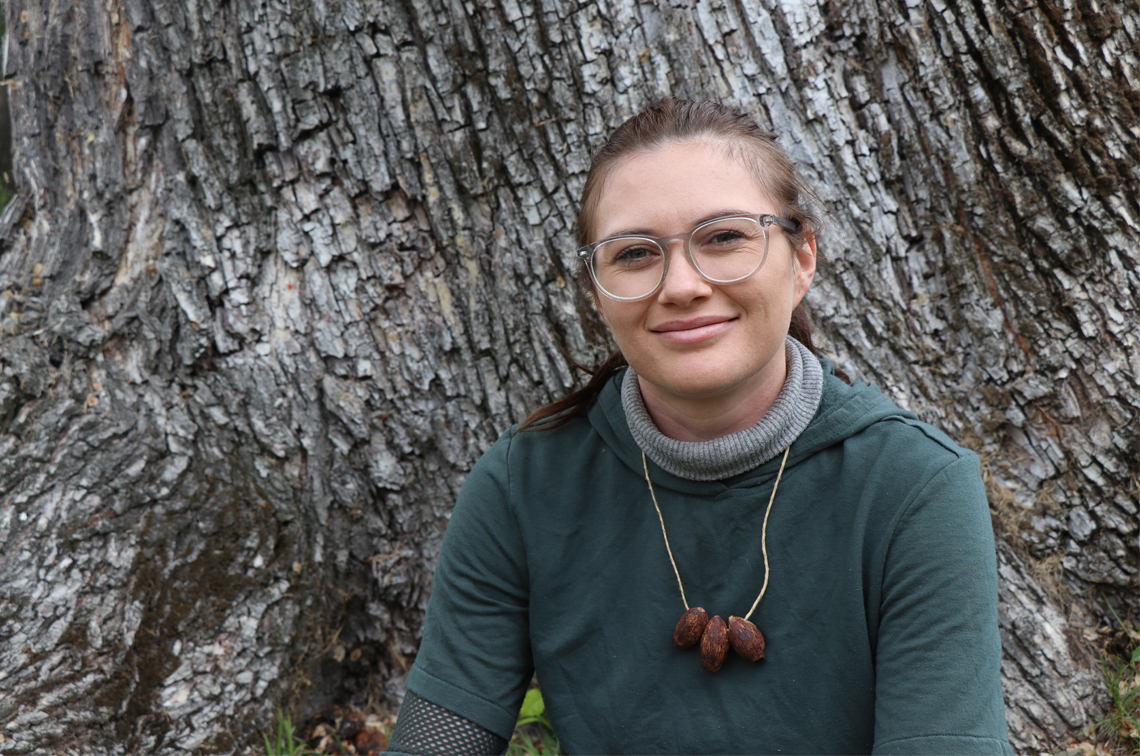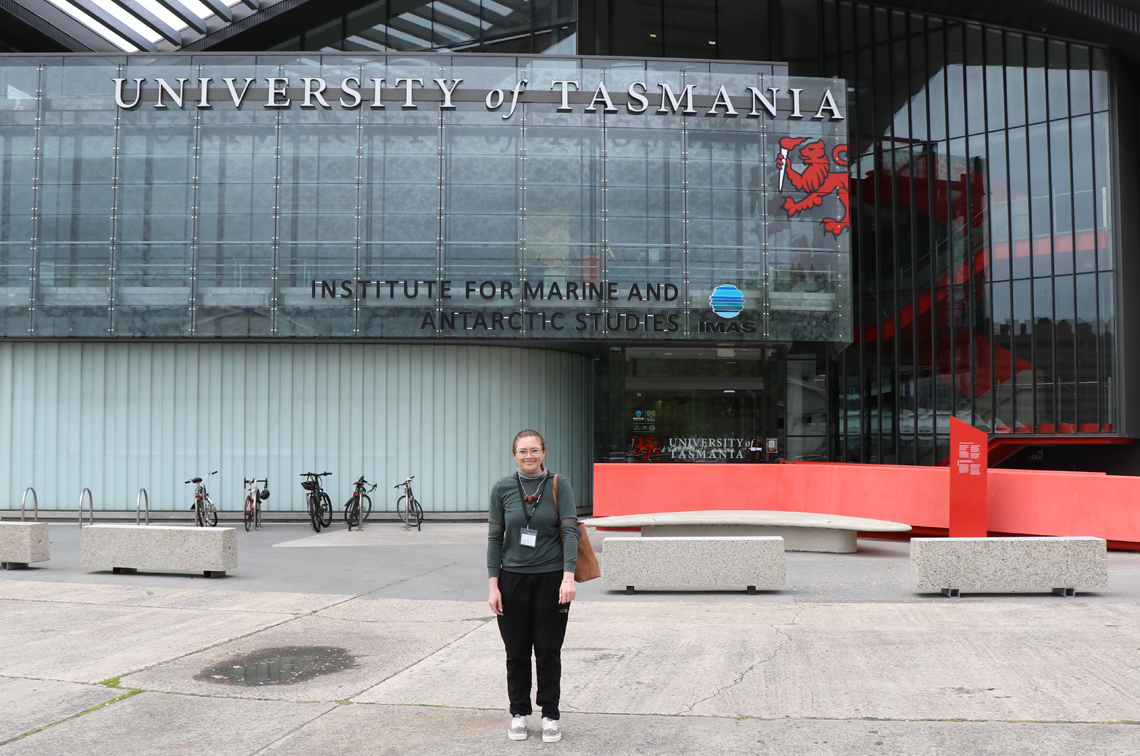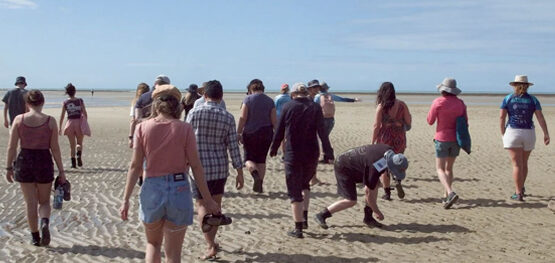Profile
1 November 2023

Marine and Coastal Hub southern node Indigenous facilitator, Jessica Riley.
Jessica Riley is the Indigenous facilitator for the southern node of the Marine and Coastal Hub. Her aim in this role is to support the greater inclusion of Indigenous aspirations to care for and monitor Sea Country.
Jessica belongs to the Trawlwoolway and Pairrebeenne clan from Tebrakunna Country in far north-eastern Trouwerner/Loetrouwitter (Tasmania). She is a direct descendant from Mannalargenna through his eldest daughter Woretoemoteyenner, who is mother of Dalrymple Johnson Briggs.
She grew up on Wonaruah Country in, New South Wales, and is now based in Sheffield Pallitorre clan Country in north-western Tasmania where members of her extended family have remained since colonisation, dispossession and displacement from their traditional homelands.
Jessica has completed a Bachelor of Global Indigenous Studies through the University of Newcastle Wollotuka Institute majoring in Human Geography and Environment with background studies in Film, Media and Culture Studies. She completed her final units cross-institutionally through University of Tasmania in science and conservation management planning and has completed initial training in adaptive Healthy Country Planning through the Coaches Conservation Network Australia.
As an active member of the Melythina Tiakana Warrana (Heart of Country) Aboriginal Corporation, Jessica has come to know and be with family, and to be mentored and guided in cultural traditions by her extended family members and matriarchal Elders.
Through coming home to and being with Tebrakunna Country, she is keen to maintain connections to cultural burning, and reconnect with women’s knowledge around Sea Country.
Jessica has worked with Timberlands Pacific on their Reconciliation Action Plan Working Group, as research assistant in Indigenous studies, as a guest lecturer at the Institute for Marine and Antarctic Studies University of Tasmania. She has also worked with NRM North as a firestick practitioner.
In her first year with the Marine and Coastal Hub, Jessica has been involved with the Australian Marine Sciences Association 2023 Conference Indigenous Working Group for Science in Sea Country, and the National Environmental Science Program Indigenous Facilitators Network.

Highlights of my first year with the hub
- Meeting and networking with Indigenous people who have similar care, passions and responsibilities for Country and Sea Country has been my absolute favourite.
- Getting to know some of these people really well has been life changing and HUGE for increasing confidence.
- Learning about some of the good progress in Indigenous partnerships and research spaces that the National Environmental Science Program contributes to, and how this relates to the broader environmental sector across the Department of Climate Change, Energy, the Environment and Water.
- Moving toward better national environmental outcomes together has been both interesting and challenging.
- Building confidence to work in professional spaces such as the Canberra government agencies can be a big challenge.
- The mutual care and love many non-Indigenous people have and the way this connects us all in beautiful ways has been really interesting to absorb and gives me hope.

